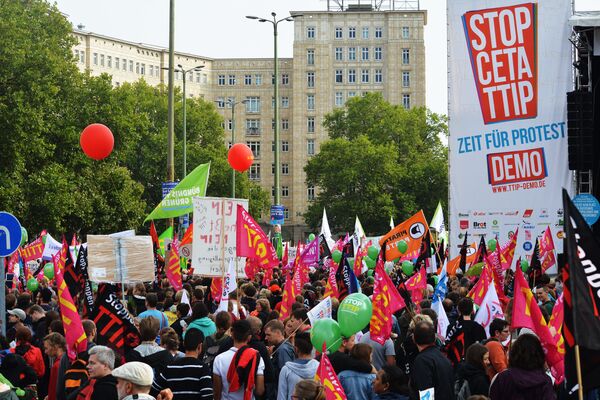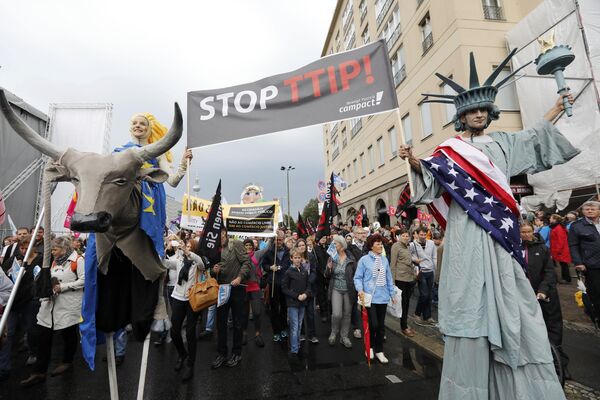The interview came after about 15,000 people marched on Brussels to protest TAFTA, a proposed Transatlantic Free Trade Area between the EU and the US, also known as the US-EU Transatlantic Trade and Investment Partnership (TTIP), and the Canada-EU Comprehensive Economic and Trade Agreement (CETA).
Both TTIP and CETA are aimed at promoting trade between the signatory states and thus are expected to contribute to multilateral economic growth and welfare.

However, critics have compared the deals to Trojan horses and warn that they are likely to inflict more losses by increasing the power of multinational corporations while undermining food, environment and labor standards.
"Greenpeace is an environmental organization and we are concerned about both the EU-US and the EU-Canada treaties because they risk undermining environmental protection on both sides of the Atlantic," he said.
Asked about how the recent protest may affect the EU's stance on the TTIP and the CETA, he said that "we have across Europe a very large movement of opposition to both treaties as more than three million European signed a petition against these documents and thousands of people took part in protest rallies in Belgium, Germany, Austria and Sweden."

"The European Commission and many governments of the EU member states have to take note of this large public opposition," Riss said.
Touching upon the two treaties possibly helping concentrate economic power in the hands of just a handful of multinational companies, he said that "this is a specific feature of both trade deals, that they allow for a type of private justice to enable multinational companies to sue a sovereign state in the European Union."
"If they do not like certain laws or policies that are put in place democratically in order to protect environment or health, we believe that it is completely out of order to have a separate justice for multinational companies; they should have the same legal system that everybody else has in the EU," according to Riss.
"So giving this private investment protection code through the Canada-EU or the US-EU trade deals puts European democracy at risk and gives multinational companies a really powerful tool to put pressure on democratically-elected governments, something we want to prevent," he said.
In September 2014, the European Union and Canada announced the conclusion of the CETA agreement.

Brussels and Ottawa hope that the CETA, which seeks to lower trade barriers and create more jobs, will be signed this fall and implemented in early 2017.
Washington and Brussels began negotiations regarding the agreement in 2013. However, the details of the deal, including rules on market access, haven't been made public. Even German legislators, after finally obtaining permission to review the deal within the last year, are limited to reviewing the 300 pages of legislation in two-hour sessions, during which they cannot access their mobile phones or connect to the internet.
The TTIP has come under fire for the lack of transparency surrounding the negotiations and for the power it would potentially give multinational corporations.




